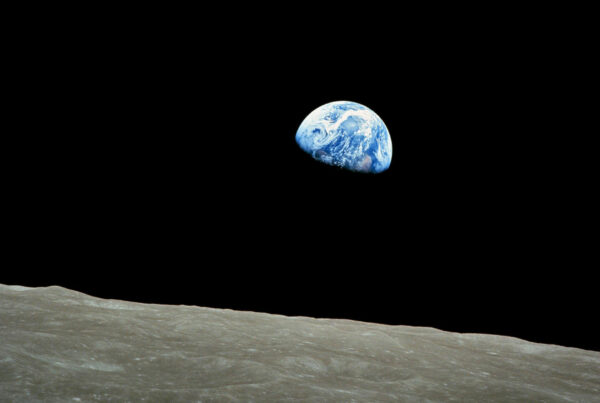The Martian asks hard questions not just about one man’s survival on a strange new world, but the entire human race’s survival on Earth itself which we’re slowly transforming to something strange and inhabitable.
Most likely you’ve already seen The Martian. (If you still haven’t, kindly do so NOW.)
So we’ve all perused the reviews, compared the novel to the film, watched the behind-the-scenes, and fact-checked all the science. We’re still applauding Matt Damon’s character, Mark Watney, for having scienced the shit out of his peculiar predicament. We’ve thanked Ridley Scott for the excellent direction, as well as Andy Weir for his brilliant novel and Drew Goddard for adapting it for the cinema.
And, of course, now we all have a better appreciation of disco music. Who could have known that Gloria Gaynor’s “I Will Survive” would have another layer of meaning in this day and age? Didn’t we all giggle in delight when that “And now you’re back/From outer space…” line played during the end credits? How much more fitting can you get?
The Martian is inarguably 2015’s most beautiful film. Survival movies such as Cast Away, Gravity, and 127 Hours will always have a place in our hearts, but The Martian quite easily sets itself apart—and not just because it’s set on an alien world 140 million miles from our planet. What makes Ridley Scott’s film so gloriously triumphant is the fact that the entire world was united in support of him. Even nations traditionally uneasy with each other—the US and China—were seen joining hands in an effort to bring our stranded astronaut back to homeland.
Such is the triumph of the human spirt, able to bridge gaps and differences for the sake of even just one person.
Green = Hope
If you ask us what’s the most tearful moment in all of The Martian, it’s when that first shoot of green appeared. Man, that potato plant’s delicate leaves pushing up from the once-hostile, now life-giving Martian soil, that so touching. Okay, it’s not the most tearful scene—that came later towards the end of the film, of course. But that moment right there, a sliver of life and a ray of hope amidst the arid soil of Mars, did it for us.
We just hope that single innocent scene resonated with everybody else watching in the theater. In the Martian setting, a plant surviving and thriving is a big miracle, but here on Earth we take that sort of thing for granted. Here was one man clinging on to dear life with a handful of potato plants—a perfect symbiosis. Meanwhile, we on Earth just gleefully squander the already dwindling resources we have—razing entire forests to give way to our whims and conveniences.
What if the Earth stopped being fertile? Would we start treating every new green shoot that sprouts up from the soil with awe and respect?
What It Means for Us Now
Films like The Martian don’t just celebrate the exhilarating what ifs of space travel; they also become a potent inspiration for humanity’s goal to colonize other planets now that science has shown us there are theoretically thousands of possible Earth-like planets out there. Space travel might be fodder for fiction right now, but we’re gradually bridging fiction and reality now.
Hopefully films like the Martian will encourage more funding for NASA for its research and projects. Some might dismiss space travel futile and just a waste of money. Say what they want, but space will always be the final frontier, open for exploration, holding the keys to the mysteries of the universe. Who knows what sort of advanced civilizations we can learn from, what new worlds we can explore? On the other hand, space travel has got a big carbon footprint going for it—the vessel, the fuel, and so many other things, not to mention the debris that would be inevitably left scattered in space. But eventually that footprint can be taken care of.
Surely it won’t be long before we take the next big leap to Mars. Already there are plans to start a colony there—namely the Mars One project whose goal is to send 24 daring souls to the Red Planet starting 2024 for them to become pioneers there. And this is quite literally a once-in-a-lifetime adventure since the selected crew will be going on a one-way ticket. Depending on how you look at it, it’s either an extreme act of courage or foolishness.
Even Elon Musk has chimed in with his radical plan for jumpstarting the inadequately thin Martian atmosphere and terraforming the planet through thermonuclear bombs. Musk has always been known for his refreshingly avant-garde and ingenious plans for the future, and we’re sure his intentions regarding Mars are clean. But before we can muck up yet one more planet in the solar system, we might as well focus on cleaning up the only planet we have right now.
But hey let’s go ahead and explore Mars all the same. That planet has just gotten a lot more interesting now that scientists have confirmed there is present-day water existing on it. But for goodness sake, if we’re going to start setting up camp there, as trespassers we owe it all the respect possible, if only to make sure it’s not going to suffer a fate like Earth did under our hands.
* * *
In a 1949 short story by Ray Bradbury titled Dark They Were, and Golden-Eyed, humans have fled to Mars to escape an atomic war on Earth. One man however starts to worry about of the new surroundings, suspecting that Mars—including the food, water, and air—is slowly transforming him and his family into Martians. While he insists on eating only food from Earth (which eventually runs out), his family only thinks he’s becoming crazy.
Eventually his wife and kids start behaving strangely, taking on new Martian names for themselves. Slowly their skin darkens, and their eyes become golden, a change that he himself couldn’t stop from happening to his own body. Before he can protest any longer, he and his family have become fully Martian, along with every other human refugees. They effectively lose their identities and memories of Earth. Finally, a new batch of humans arrive on the scene, perplexed at the absence of humans on Mars, not knowing they’ve assimilated into the planet, and that they themselves are next in line.
It’s a chilling story, and we’re sure it has a moral buried in it somewhere, but we’ll leave it up to you to unearth.










